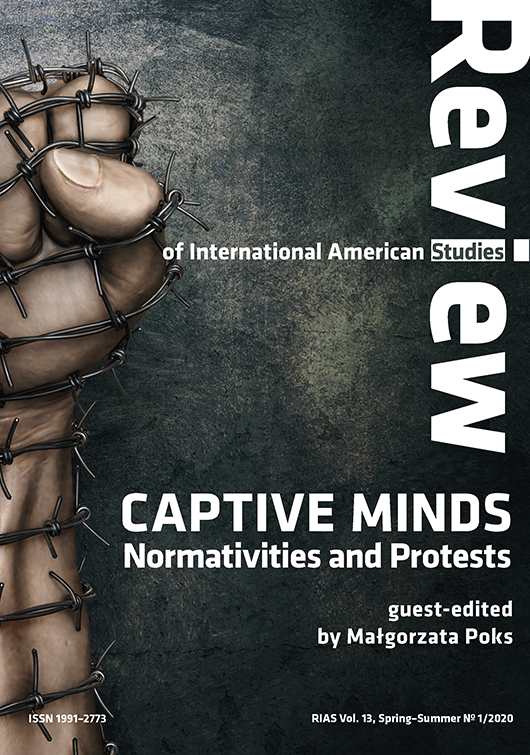Vol 13 No 1 (2020): Captive Minds—RIAS Vol. 13, Spring–Summer (1/2020)
As a foundation and product of grand narratives, norms apply to any and every aspect of individual, communal, and social life. They regulate our behaviors, determine directions in the evolution of arts and philosophies, condition intra- and cross cultural understanding, organize hierarchies. Yet—when transformed into laws—norms become appropriated by dominant discourses and become “truths.” Those in control of language always construe them as “universal” and, as such, “transparent.” The usefulness of norms stems from the fact that they facilitate our orientation in the world. In the long run, however, they are bound to block our imaginative access to alternative ways of living and thinking about reality, thus enslaving our minds in a construction of reality believed to be natural. In a world so determined, dissenting perspectives and pluralities of views threaten to disrupt norms and normativities, along with the order (patriarchal, racist, sexist, ableist, speciesist, etc.) built into them. Benefactors of a normative worldview and average individuals busily trying to fit in police the perimeters of the accepted, disciplining nonconformists, rebels, and nonnormative individualists of every stripe. “Assent—and you are sane,” quipped Emily Dickinson in her well-known poem, “Demur—you’re straightway dangerous—And handled with a Chain" (read more in Małgorzata Poks's "Introduction")


